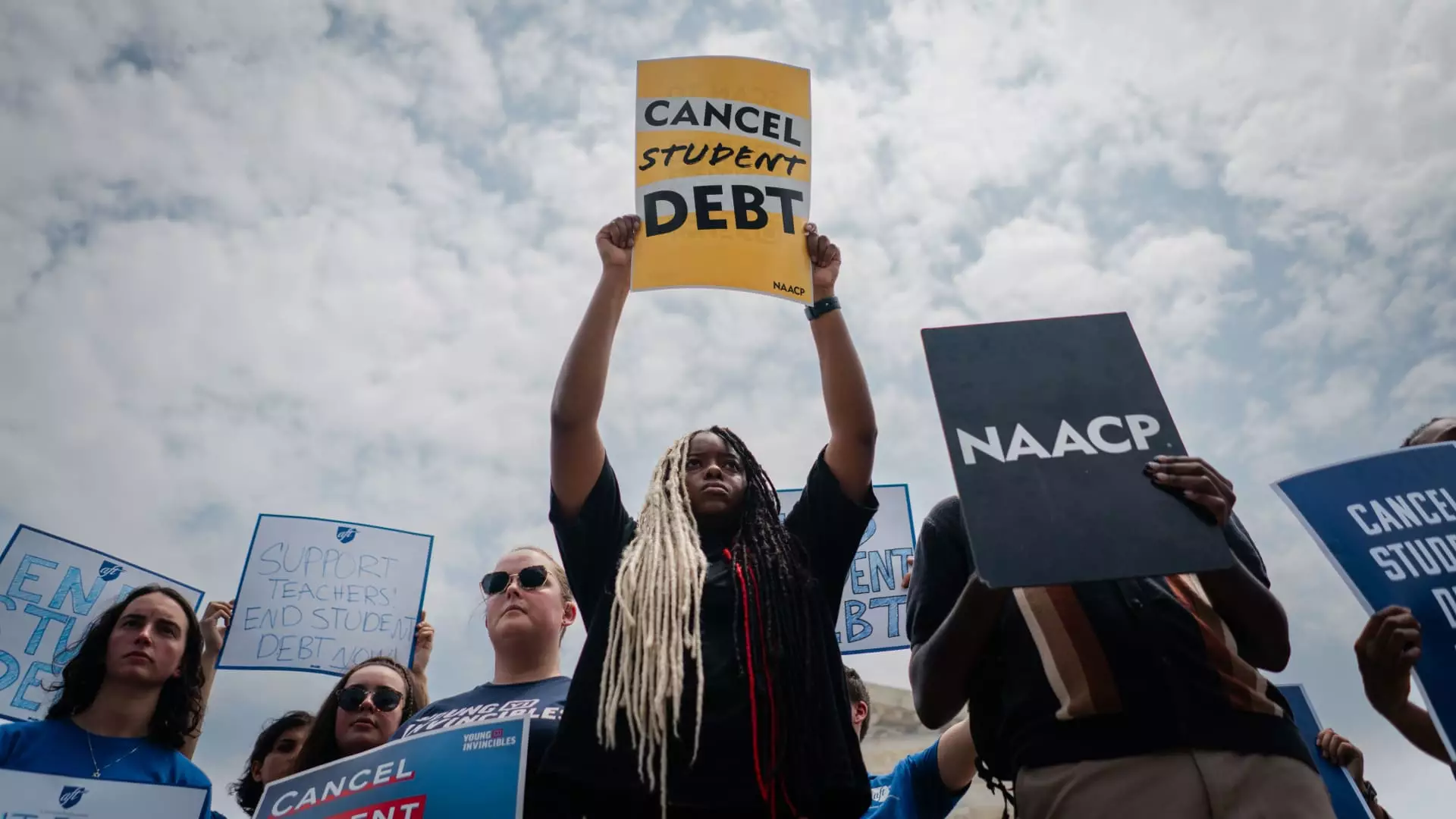Arkansas Attorney General Tim Griffin’s personal experience of repaying his $100,000 student loan balance over 30 years sheds light on the controversial topic of student loan forgiveness. Griffin has been vocal about his opposition to blanket student loan forgiveness, arguing that it is unfair for responsible borrowers like himself to have their tax dollars cover the debts of others. Despite his efforts, the Biden administration’s proposal for student loan forgiveness has received significant public attention, with over 148,000 individuals sharing their opinions on the matter.
According to Kate Padgett Walsh, a professor of philosophy at Iowa State University, the concept of debt has deep roots in human relationships. She argues that repaying debts is fundamental to building and maintaining communities, where individuals are expected to contribute their fair share. However, Padgett Walsh suggests that the emphasis on personal responsibility and debt repayment has been amplified by entities that profit from debt, leading to a skewed view of the issue. She urges a shift in priorities towards preventing and alleviating student debt rather than focusing solely on personal responsibility.
The Partisan Divide on Loan Forgiveness
Devin Singh, an associate professor of religion at Dartmouth College, highlights the partisan nature of the student loan forgiveness debate. He suggests that the issue resonates differently with members of each political party based on their relationship to higher education. Democrats, who are more likely to have pursued higher education, may view student loan forgiveness as a direct benefit, while Republicans may be less inclined to support it. Singh also notes that perceptions of education as a public good versus a private commodity further contribute to the partisan split on loan forgiveness.
Misconceptions and Generational Differences
Charlie Eaton, an associate professor of sociology at the University of California, Merced, points out common misconceptions surrounding student loan borrowers. He argues that many people struggle to empathize with borrowers if they have not been in a similar situation themselves. Eaton emphasizes the generational gap, noting that older Americans often did not have to take out loans for college. Additionally, he underscores the challenges faced by borrowers who continue to make payments on their debts but struggle to keep up with the accumulating interest, resulting in a growing debt burden over time.
Marlon Fox, a chiropractor in South Carolina, quietly had his $119,500 student debt forgiven last year after years of repayment. Despite his efforts to pay off his loans since 1988 and contributing over $200,000 towards his debt, Fox faced skepticism and criticism for benefiting from loan forgiveness. His story reflects the complex and individualized experiences of borrowers who navigate the challenges of student debt repayment.
The issue of student loan forgiveness is multifaceted, encompassing personal responsibility, ethical considerations, partisan divides, and misconceptions. By examining the diverse perspectives shared by experts and individuals with firsthand experience, it becomes clear that there is no one-size-fits-all solution to the complex issue of student loan forgiveness. As the debate continues, it is essential to approach the topic with empathy, critical thinking, and a nuanced understanding of the systemic factors at play.

